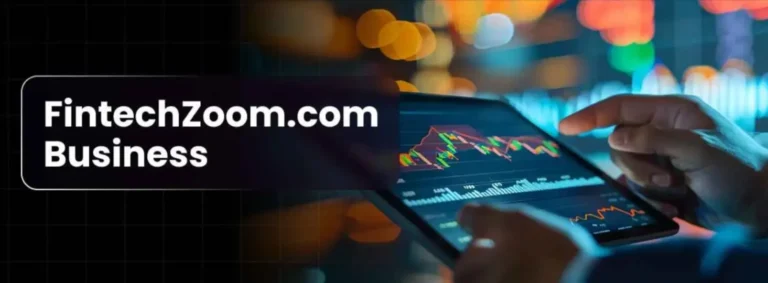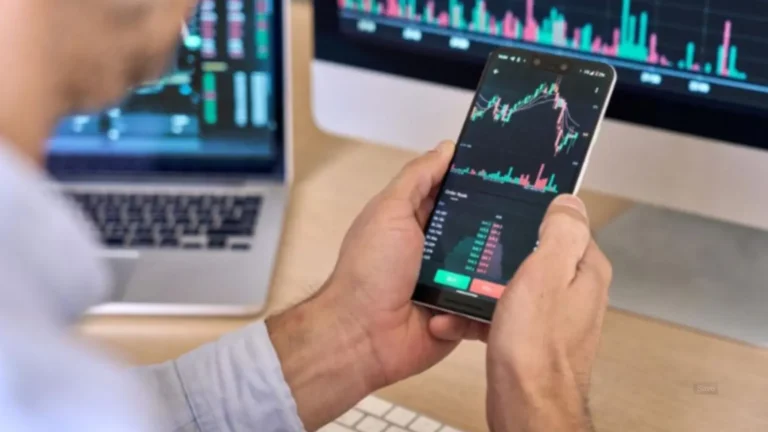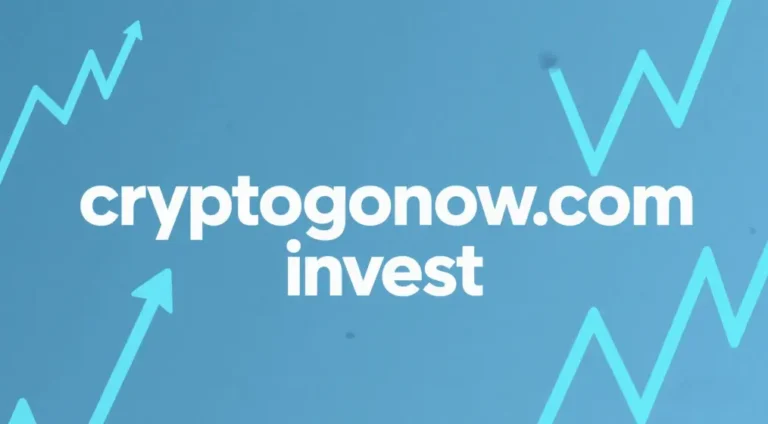In-House Financing Car Lots – Buy Smart with This Guide
Imagine this: You’re ready to buy a car, but your credit score is less than stellar. Banks turn you away, and traditional loans seem out of reach. Where do you turn? For many, the answer lies with in-house financing car lots, also known as “buy here, pay here” (BHPH) dealerships. These lots offer a lifeline for buyers with poor or no credit, providing loans directly through the dealership. But is this option right for you? In this guide, we’ll dive deep into how in-house financing works, its benefits and risks, and key considerations to ensure you make a smart decision. Drawing from reputable sources like the Consumer Financial Protection Bureau (CFPB) and industry insights, this article will empower you to navigate the world of in-house financing car lots with confidence.
What Are In-House Financing Car Lots?
In-house financing car lots, often called “buy here, pay here” dealerships, are unique in the auto industry. Unlike traditional dealerships that rely on banks or credit unions for loans, these lots act as both the seller and the lender. This means you buy the car and make payments directly to the dealership, streamlining the process for those who struggle to secure traditional financing.
How It Works
When you choose a car from a BHPH lot, the dealership evaluates your financial situation—often with less focus on credit scores than banks. You sign a loan agreement with the dealership, agreeing to weekly, biweekly, or monthly payments. The car itself serves as collateral, meaning the dealership can repossess it if you miss payments. According to the Federal Reserve, BHPH dealers account for less than 10% of the $1.53 trillion auto loan market in 2024, but their impact is significant for subprime borrowers.
Who They Serve
In-house financing car lots cater to people with low credit scores, no credit history, or past financial challenges like bankruptcy. They’re especially popular among younger buyers, low-income households, and those rebuilding their credit. For example, a 2023 NerdWallet study found that 60% of BHPH customers have credit scores below 620, making traditional loans nearly impossible.
Why They Matter
These dealerships fill a critical gap in the auto market. With rising car prices—averaging $48,301 for new vehicles in 2024, per Kelley Blue Book—access to financing is more important than ever. BHPH lots offer a practical solution, but they come with unique considerations we’ll explore below.
Benefits of In-House Financing Car Lots
In-house financing car lots offer several advantages, especially for buyers who feel shut out by traditional lenders. Let’s break down why these dealerships are a game-changer for many.
Accessibility for All Credit Types
The biggest draw of BHPH lots is their willingness to work with buyers who have bad credit or no credit. Unlike banks, which often require credit scores of 670 or higher for favorable rates, BHPH dealers focus on your income and ability to pay. This makes bad credit car loans accessible to millions who might otherwise be stuck without a vehicle.
Speed and Convenience
Need a car fast? In-house financing delivers. Many BHPH lots approve loans and let you drive away the same day. There’s no waiting for third-party lenders or lengthy paperwork. A 2024 Clint Newell Chevrolet blog post highlighted a customer who secured a used sedan within hours, despite a recent bankruptcy.
Flexible Payment Plans
BHPH dealers often tailor payment schedules to your budget. Whether you’re paid weekly or monthly, they can adjust terms to fit your cash flow. This flexibility is a lifeline for gig workers or those with irregular incomes.
Eco-Friendly Options
Some in-house financing lots are adapting to consumer demand for sustainability. According to the International Energy Agency, electric vehicle (EV) sales reached 14 million globally in 2023. Many BHPH dealers now offer fuel-efficient or hybrid vehicles, helping buyers save on gas while reducing their environmental footprint.
Risks and Challenges of In-House Financing
While in-house financing car lots offer clear benefits, they’re not without risks. Understanding these challenges is crucial to avoid costly mistakes.
Higher Interest Rates
BHPH loans often come with steep interest rates, sometimes exceeding 20% APR for subprime borrowers. Compare that to the average 7.1% APR for traditional auto loans in 2024, per the Federal Reserve. These high-interest car loans reflect the risk dealers take by lending to buyers with poor credit, but they can significantly increase the total cost of the car.
Risk of Repossession
Since the car is collateral, missing payments can lead to quick repossession. The CFPB reports that BHPH dealers repossess vehicles at higher rates than traditional lenders, with some lots reclaiming cars after just one missed payment. This can leave buyers without a vehicle and still owing money.
Predatory Practices
Not all BHPH dealers are created equal. Some engage in predatory auto lending, such as hiding fees, inflating car prices, or failing to report payments to credit bureaus. The CFPB has cracked down on such practices, particularly those targeting minority borrowers. For example, a 2023 CFPB report flagged “discretionary markups” that unfairly raised costs for Black and Hispanic buyers.
Consumer Protections
To avoid scams, verify that the dealership reports payments to credit bureaus like Experian or Equifax. This ensures your on-time payments help rebuild your credit. Also, watch for “junk fees” like unnecessary warranties or add-ons, which can inflate your loan.
Consumer Considerations When Choosing In-House Financing
Choosing in-house financing requires careful planning. Here are key factors to consider before signing on the dotted line.
Budget Wisely
The average auto loan balance in 2024 is $24,297, according to Experian. Before committing, calculate what you can afford, factoring in monthly payments, insurance, and maintenance. Use online tools like NerdWallet’s auto loan calculator to estimate costs and avoid overextending your budget.
Inspect the Vehicle
BHPH lots often sell used cars, so quality varies. Before buying, have the vehicle inspected by a trusted mechanic or through the AAA Approved Auto Repair network. This ensures you’re not stuck with a lemon that requires costly repairs.
Research the Dealership
Not all BHPH dealers are reputable. Check online reviews on platforms like Google or Yelp, and confirm the dealership is manufacturer-approved or accredited by organizations like the Better Business Bureau. This reduces the risk of scams or unfair practices.
Prioritize Sustainability
If environmental impact matters to you, ask about fuel-efficient or electric vehicles. The International Energy Agency notes that EVs accounted for 18% of global car sales in 2023. Choosing a hybrid or EV from a BHPH lot can save money on fuel and align with eco-conscious goals.
Broader Impact of In-House Financing on the Auto Market
In-house financing car lots are more than just a niche—they’re shaping the broader automotive landscape in significant ways.
Market Growth
The automotive finance market is projected to reach $451.71 billion by 2030, per Grand View Research. BHPH lots play a key role by serving underserved communities, including low-income households and those with limited access to traditional loans.
Economic Inclusion
BHPH dealers help address disparities in auto financing. A 2023 Mintel report found that minority borrowers often face higher rejection rates from banks. In-house financing offers an alternative, though higher costs can exacerbate financial strain if not managed carefully.
Technological Innovation
The auto finance industry is evolving. Some BHPH dealers now use AI to assess credit risk, improving loan approvals. Others accept cryptocurrency payments, reflecting trends noted by Fortune Business Insights. These innovations make financing more accessible but require buyers to stay informed.
Environmental Progress
As consumer demand for sustainability grows, BHPH lots are expanding their offerings of electric and hybrid vehicles. This aligns with global goals to reduce carbon emissions, as outlined in the International Energy Agency’s 2023 report on EV adoption.
Comparing In-House Financing to Other Options
How does in-house financing stack up against other ways to buy a car? Let’s compare.
Traditional Lenders
Banks and credit unions offer lower interest rates—around 7.1% APR in 2024—but require better credit. BHPH lots, with their higher rates, are often the only option for subprime borrowers. Captive finance companies (e.g., Toyota Financial Services) may offer competitive rates but still prioritize creditworthy buyers.
Leasing vs. Buying
Leasing typically means lower monthly payments, but you don’t own the car at the end. BHPH loans, while costlier, lead to ownership. A 2023 Mintel survey found that 45% of car buyers prioritize lower payments, making leasing appealing, but BHPH suits those who want to own their vehicle outright.
Making the Right Choice
If your credit is strong, explore traditional loans first. For those with bad credit car loans as their only option, BHPH can be a practical choice, provided you research carefully and negotiate terms.
Must Read About: Priced in Bitcoin 21 – Why the 21M Supply Cap Matters Now
Tips for a Successful In-House Financing Experience
Maximize your BHPH experience with these practical tips.
Negotiate Loan Terms
Don’t accept the first offer. Negotiate interest rates and ask about discretionary markups. A 2024 NerdWallet guide suggests buyers can save hundreds by haggling on loan terms or car prices.
Review Contracts Thoroughly
Read the fine print to avoid hidden fees or unfavorable terms. Look for clauses about repossession or late payment penalties. If unsure, consult a trusted advisor before signing.
Build Your Credit
Choose a dealership that reports payments to credit bureaus. Consistent, on-time payments can boost your credit score, opening doors to better loan terms in the future.
Choose Eco-Friendly Vehicles
Opt for hybrids or EVs to save on fuel costs and support sustainability. Many BHPH lots now stock these vehicles, aligning with the growing demand for greener options.
In-house financing car lots offer a vital solution for buyers who can’t access traditional auto loans. Their accessibility, speed, and flexibility make them a lifeline for millions, but higher interest rates and the risk of predatory practices demand caution. By budgeting wisely, researching dealerships, and prioritizing quality vehicles—perhaps even eco-friendly ones—you can make the most of in-house financing car lots. Armed with insights from sources like the CFPB and NerdWallet, you’re ready to navigate this option with confidence. Start your car-buying journey today by researching reputable BHPH dealers and driving away with a plan that fits your budget and values.
FAQs – In-House Financing Car Lots
1. Can I trade in my old car at an in-house financing car lot?
Yes, many buy here, pay here (BHPH) dealerships accept trade-ins. The trade-in value can reduce your down payment or loan amount, but BHPH lots may offer lower trade-in values than traditional dealers due to their focus on subprime lending.
2. Do in-house financing car lots offer warranties on their vehicles?
Some BHPH dealerships provide limited warranties, often 30-90 days, covering major components like the engine or transmission. However, terms vary, so always ask for details and consider purchasing an extended warranty for added protection.
3. How do in-house financing car lots verify income for loan approval?
BHPH dealers typically require proof of income, such as recent pay stubs, bank statements, or tax returns. They focus on your ability to make payments rather than credit scores, but requirements differ by dealership.
4. Can I refinance a BHPH loan with a traditional lender later?
Yes, if you make consistent payments and improve your credit score, you may qualify to refinance with a bank or credit union for a lower interest rate. Check with your BHPH dealer to ensure they report payments to credit bureaus.
5. Are there in-house financing car lots that specialize in specific car brands?
Some BHPH lots focus on certain brands, like Honda or Toyota, but most offer a mix of used vehicles. Specialty lots may have better expertise in their brand but could have limited inventory.
6. What happens if I need to relocate while under a BHPH loan?
If you move, you can continue making payments remotely, often online or by mail. Some dealers require in-person payments, so confirm their policy and notify them of your relocation to avoid issues.
7. Do in-house financing car lots offer online car buying options?
Many BHPH dealers now offer online browsing and pre-approval processes, allowing you to select a car and apply for financing digitally. However, you may still need to visit the lot to finalize the purchase.
8. Can I get a loan from a BHPH lot if I’m self-employed?
Yes, self-employed individuals can qualify by providing proof of income, such as bank statements or invoices. BHPH dealers are often more flexible than banks, but they may require additional documentation to verify income stability.
9. Are there age restrictions for vehicles sold at in-house financing car lots?
BHPH lots typically sell used cars, often 5-10 years old, to keep costs affordable. Some may have newer models, but older vehicles are common due to their lower price points for subprime buyers.
10. How do I know if a BHPH dealership is licensed and legitimate?
Check if the dealership is licensed by your state’s Department of Motor Vehicles or equivalent agency. Look for accreditation with the Better Business Bureau and read customer reviews on platforms like Google to ensure legitimacy.







